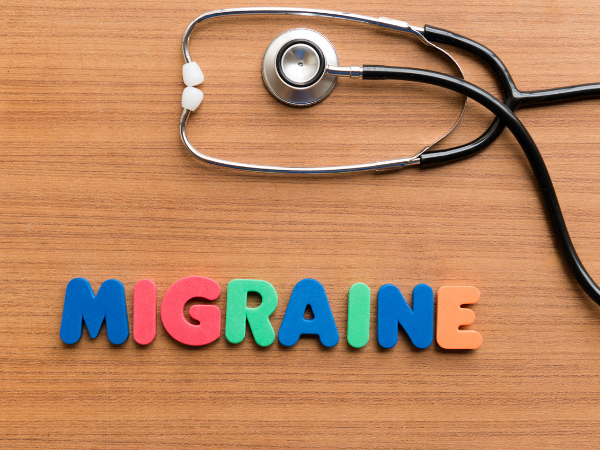Yes, low iron can cause migraines. Iron deficiency can lead to insufficient oxygen in the brain, triggering headaches.
Iron is a crucial mineral that helps transport oxygen throughout the body. When iron levels are low, it can result in anemia, causing reduced oxygen supply to organs, including the brain. This lack of oxygen can trigger migraines or severe headaches.
Women, especially those of childbearing age, are more prone to iron deficiency due to menstruation. Other symptoms of low iron include fatigue, weakness, and dizziness. Eating iron-rich foods like red meat, beans, and leafy greens can help maintain healthy iron levels. Consulting a healthcare provider for a proper diagnosis and treatment plan is essential to address iron deficiency and associated migraines.
What Is Iron Deficiency?
Many people suffer from migraines, but did you know that low iron levels might be a cause? Understanding iron deficiency can help identify if it’s the culprit behind your headaches. Let’s delve into what iron deficiency is and how it impacts your health.
Iron deficiency occurs when the body doesn’t have enough iron to produce hemoglobin. Hemoglobin is a protein in red blood cells that carries oxygen throughout the body. Without sufficient iron, the body can’t get enough oxygen, leading to various health issues.
Common Symptoms Of Iron Deficiency
- Fatigue and weakness
- Pale skin
- Shortness of breath
- Dizziness or lightheadedness
- Cold hands and feet
- Brittle nails
How Iron Deficiency Is Diagnosed
Doctors typically diagnose iron deficiency through blood tests. These tests measure levels of hemoglobin, hematocrit, and ferritin. Low levels of these components indicate iron deficiency.
| Test | Normal Range | Deficient Range |
|---|---|---|
| Hemoglobin | 13.8-17.2 g/dL (men), 12.1-15.1 g/dL (women) | Below normal range |
| Hematocrit | 40.7-50.3% (men), 36.1-44.3% (women) | Below normal range |
| Ferritin | 24-336 ng/mL (men), 11-307 ng/mL (women) | Below normal range |
Causes Of Iron Deficiency
- Inadequate dietary intake
- Increased iron needs during pregnancy
- Blood loss from menstruation or internal bleeding
- Inability to absorb iron due to digestive issues
Treating Iron Deficiency
Treatment involves increasing iron intake through diet or supplements. Iron-rich foods include red meat, beans, and spinach. Oral iron supplements are also effective. Always consult a healthcare provider before starting supplements.

IV Infusion Therapy For Migraines
IV infusion for migraines provides rapid relief and rehydrates the body. It delivers essential medications directly to the bloodstream.
The Connection Between Iron Deficiency And Migraines
Can low iron cause migraines? The answer might surprise you. Migraines are more than just headaches; they can be debilitating. Many factors can trigger migraines, and one of them is iron deficiency. Let’s explore the connection between iron deficiency and migraines.
Low Iron And Brain Oxygen
Iron deficiency can reduce oxygen in the brain. Iron helps in the production of hemoglobin, which carries oxygen. Without enough iron, your brain might not get the oxygen it needs.
Symptoms of low brain oxygen include:
- Headaches
- Dizziness
- Fatigue
When the brain lacks oxygen, it can cause migraines. These migraines are often severe. They may come with other symptoms like nausea and light sensitivity. Ensuring adequate iron levels can help manage these symptoms.
Here’s a table showing the effects of low iron on brain oxygen:
| Iron Levels | Brain Oxygen | Symptoms |
|---|---|---|
| Normal | Adequate | No Headaches |
| Low | Reduced | Migraines, Dizziness |
Low Iron And Hormonal Imbalance
Iron deficiency can also affect hormones. Hormones play a crucial role in regulating body functions. Low iron can disrupt this balance, leading to migraines.
Hormonal imbalance due to low iron can cause:
- Irregular menstrual cycles
- Mood swings
- Fatigue
Women are more affected by iron deficiency. Menstrual blood loss can lower iron levels. This can lead to hormonal changes and migraines.
Here’s how low iron impacts hormones:
| Iron Levels | Hormonal Balance | Symptoms |
|---|---|---|
| Normal | Stable | Regular Periods |
| Low | Imbalanced | Migraines, Mood Swings |
Maintaining iron levels is essential for hormonal balance. It can reduce the risk of migraines. Eating iron-rich foods can help. Supplements can also be a solution. Consult your doctor for the best approach.
Migraine Symptoms And Iron Deficiency
Migraines are intense headaches that can disrupt daily life. Many people wonder if low iron levels can cause migraines. Understanding the link between migraine symptoms and iron deficiency can help manage and prevent these debilitating headaches. Here, we explore common migraine symptoms and the signs of iron deficiency.
Common Migraine Symptoms
Migraines are more than just severe headaches. They come with a range of symptoms. Recognizing these signs can help in diagnosing and treating migraines effectively.
- Throbbing pain: Often on one side of the head.
- Light sensitivity: Bright lights can worsen the pain.
- Sound sensitivity: Loud noises can be unbearable.
- Nausea and vomiting: Many people feel sick to their stomachs.
- Aura: Visual disturbances like flashing lights or zigzag lines.
- Fatigue: Feeling extremely tired during and after a migraine.
These symptoms can vary in intensity and duration. They may last from a few hours to several days. Migraines can be triggered by stress, certain foods, and even hormonal changes. Understanding these triggers can help in managing the condition.
Iron Deficiency Symptoms
Iron deficiency occurs when the body lacks enough iron. This can lead to various health issues. Recognizing the signs of iron deficiency is crucial for maintaining overall health.
- Fatigue: Feeling constantly tired and weak.
- Pale skin: Noticeable paleness, especially in the face.
- Shortness of breath: Difficulty breathing during simple tasks.
- Dizziness: Feeling lightheaded or dizzy.
- Cold hands and feet: Frequently feeling cold.
- Brittle nails: Weak and easily breakable nails.
- Headaches: Frequent headaches, including migraines.
Iron is vital for producing hemoglobin, which carries oxygen in the blood. Low iron levels can affect brain function and lead to headaches. Consuming iron-rich foods or supplements can help alleviate these symptoms.

Diagnosing Iron Deficiency And Migraines
Iron is a crucial mineral for our body. It helps in making red blood cells. Without enough iron, you might feel tired and weak. Low iron levels can even lead to migraines. Diagnosing iron deficiency and migraines early can help manage symptoms effectively.
Blood Tests For Iron Deficiency
Doctors use blood tests to check iron levels. These tests are simple and quick. Knowing your iron levels can help treat migraines caused by low iron. Several types of blood tests check for iron deficiency:
- Serum Ferritin: This test measures stored iron in your body. Low ferritin levels suggest iron deficiency.
- Hemoglobin Test: This test checks the amount of hemoglobin. Low hemoglobin levels indicate anemia.
- Complete Blood Count (CBC): This test measures different components of your blood. It can show if you have anemia.
- Serum Iron: This test measures the iron in your blood. Low levels can indicate a deficiency.
Here is a table summarizing the tests:
| Test Name | Purpose |
|---|---|
| Serum Ferritin | Measures stored iron |
| Hemoglobin Test | Checks hemoglobin levels |
| Complete Blood Count (CBC) | Measures blood components |
| Serum Iron | Measures iron in blood |
These tests help identify iron deficiency. Early diagnosis can prevent migraines. Consult your doctor for these tests if you have symptoms like fatigue, weakness, or frequent headaches.
Migraine Diagnosis
Diagnosing migraines involves understanding your symptoms. Doctors use several methods to diagnose migraines. Keeping a headache diary helps track patterns:
- Frequency: Note how often headaches occur.
- Duration: Record how long each headache lasts.
- Intensity: Rate the pain from 1 to 10.
- Triggers: Identify what causes your headaches.
Doctors may perform physical exams and ask about family history. Neurological exams check for nervous system issues. Sometimes, imaging tests like MRI or CT scans are used. These tests rule out other conditions. Here are some key points to remember:
- Describe your symptoms clearly.
- Keep a detailed headache diary.
- Share your family history with the doctor.
- Be prepared for possible imaging tests.
Accurate diagnosis helps in treating migraines effectively. Discuss your symptoms and concerns with your doctor. Proper diagnosis and treatment can improve your quality of life.
Treating Iron Deficiency And Migraines
Iron deficiency can lead to various health issues, including migraines. Treating iron deficiency and migraines involves a holistic approach. This includes iron supplements, migraine medications, and lifestyle changes. Each of these plays a crucial role in improving overall health and reducing the frequency and severity of migraines.
Iron Supplements
Iron supplements are a primary method for treating iron deficiency. They help increase the levels of iron in your blood. This can reduce the frequency of migraines. Here are some common iron supplements:
- Ferrous Sulfate: This is the most common form of iron supplement. It is effective and affordable.
- Ferrous Gluconate: This form is gentler on the stomach. It is suitable for those with sensitive stomachs.
- Ferrous Fumarate: This type is also effective. It is a good option if other forms cause stomach issues.
It’s important to take iron supplements with vitamin C. Vitamin C helps your body absorb iron better. Here is a simple table showing foods rich in vitamin C:
| Food | Vitamin C Content |
|---|---|
| Oranges | 70 mg per medium orange |
| Strawberries | 89 mg per cup |
| Red Bell Peppers | 152 mg per cup |
Consult your doctor before starting iron supplements. Overconsumption can lead to iron overload, which is harmful.
Migraine Medications
Migraine medications can help manage the pain and symptoms. There are various types of migraine medications:
- Over-the-counter (OTC) Medications: These include aspirin, ibuprofen, and acetaminophen. They are effective for mild migraines.
- Triptans: These are prescription medications. They help relieve pain, nausea, and sensitivity to light and sound.
- Ergots: These are used when triptans are not effective. They are less commonly prescribed.
Preventive medications are also available. These include:
- Beta-blockers: These help prevent migraines from occurring.
- Antidepressants: Certain types can help reduce the frequency of migraines.
- Anti-seizure Drugs: These are effective for some people in preventing migraines.
Discuss with your healthcare provider to find the best medication for your situation. Side effects and effectiveness can vary from person to person.
Lifestyle Changes
Lifestyle changes can significantly reduce the frequency and severity of migraines. Here are some effective lifestyle changes:
- Healthy Diet: Eating a balanced diet rich in iron can help. Include foods like spinach, red meat, and lentils.
- Regular Exercise: Exercise can improve blood circulation and reduce stress. Aim for at least 30 minutes of moderate exercise daily.
- Hydration: Drink plenty of water. Dehydration can trigger migraines.
- Sleep Hygiene: Maintain a regular sleep schedule. Poor sleep can lead to migraines.
- Stress Management: Practice relaxation techniques like yoga and meditation. They help reduce stress and prevent migraines.
Avoid triggers that can cause migraines. Common triggers include certain foods, strong smells, and bright lights. Keeping a migraine diary can help identify and avoid these triggers.
Consult a healthcare provider for personalized advice on lifestyle changes. They can provide tailored recommendations based on your specific needs and health condition.
Preventing Iron Deficiency And Migraines
Many people experience migraines, and for some, low iron might be the culprit. Preventing iron deficiency is key to reducing the risk of migraines. Let’s dive into practical ways to avoid iron deficiency and keep migraines at bay.
Dietary Changes
Changing your diet can help prevent iron deficiency. Here are some steps to include more iron in your meals:
- Eat iron-rich foods: Include red meat, poultry, and fish.
- Consume plant-based sources: Beans, lentils, and spinach are great options.
- Pair iron with vitamin C: Vitamin C helps your body absorb iron better. Try citrus fruits, bell peppers, and strawberries.
Here is a helpful table of iron-rich foods:
| Food | Iron Content (mg per 100g) |
|---|---|
| Beef Liver | 6.5 |
| Spinach | 2.7 |
| Lentils | 3.3 |
Including these foods in your diet can boost your iron levels.
Supplementing
Sometimes, dietary changes are not enough. Iron supplements can help. Here’s what you need to know:
- Talk to your doctor: Always consult a healthcare professional before starting supplements.
- Choose the right supplement: Look for ferrous sulfate or ferrous gluconate.
- Follow dosage instructions: Taking too much iron can be harmful.
Here’s a simple guide to iron supplements:
| Type | Benefits |
|---|---|
| Ferrous Sulfate | High absorption rate |
| Ferrous Gluconate | Gentler on the stomach |
Supplements can fill the gaps in your diet and keep your iron levels stable.
Stress Reduction
Stress can affect iron levels and trigger migraines. Reducing stress helps in managing both. Here are some tips:
- Practice relaxation techniques: Try deep breathing, meditation, or yoga.
- Maintain a routine: Regular sleep and exercise can reduce stress.
- Stay organized: Keeping a planner can help manage daily tasks and reduce anxiety.
Here’s a list of stress-reducing activities:
- Meditation
- Walking in nature
- Listening to music
Implementing these activities can help lower stress and keep migraines at bay.
Frequently Asked Questions
Do Iron Supplements Help With Migraines?
Iron supplements can help if migraines are caused by anemia. Consult a doctor to determine the root cause.
Can Low Iron And Vitamin D Cause Migraines?
Yes, low iron and vitamin D can contribute to migraines. Both deficiencies affect brain function and blood flow. Consult a doctor.
What Are The Symptoms Of Being Low On Iron?
Symptoms of low iron include fatigue, weakness, pale skin, shortness of breath, dizziness, and cold hands and feet. You may also experience headaches, brittle nails, and cravings for non-food items. Consult a doctor for proper diagnosis and treatment.
What Are The Five Strange Symptoms Of Anemia?
1. Unusual cravings for ice or dirt. 2. Swollen or sore tongue. 3. Restless leg syndrome. 4. Brittle nails or spoon-shaped nails. 5. Frequent headaches or dizziness.
Conclusion
Addressing low iron levels can potentially reduce migraine frequency. Consult a healthcare professional for personalized advice. Proper diagnosis and treatment of iron deficiency may improve overall well-being. Monitoring iron intake and maintaining a balanced diet are key. Stay informed and proactive about your health to minimize migraine risks.






